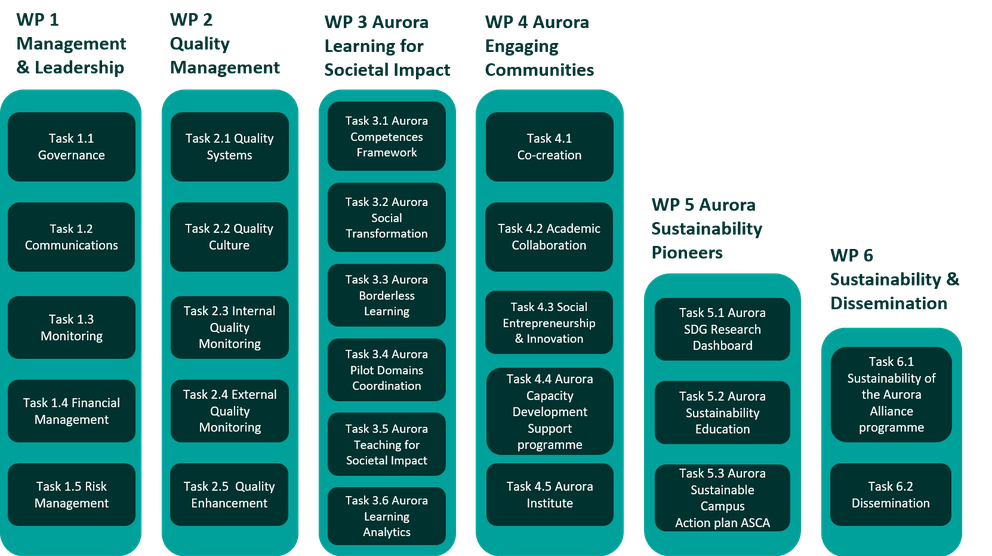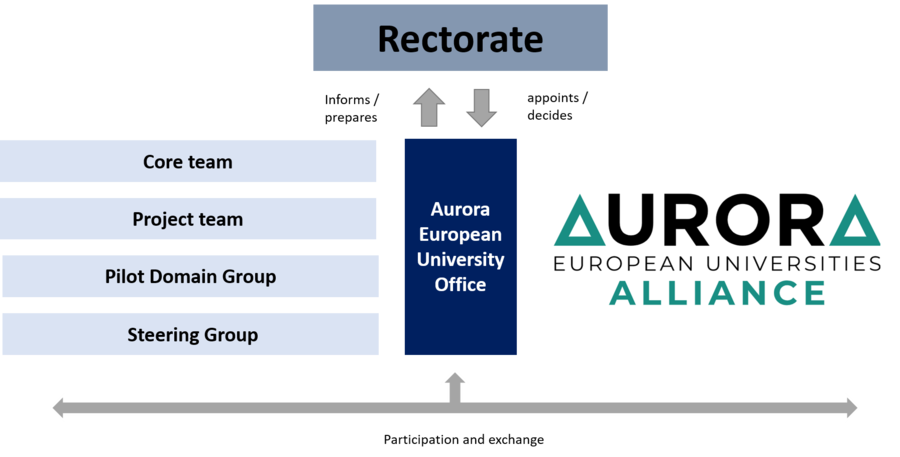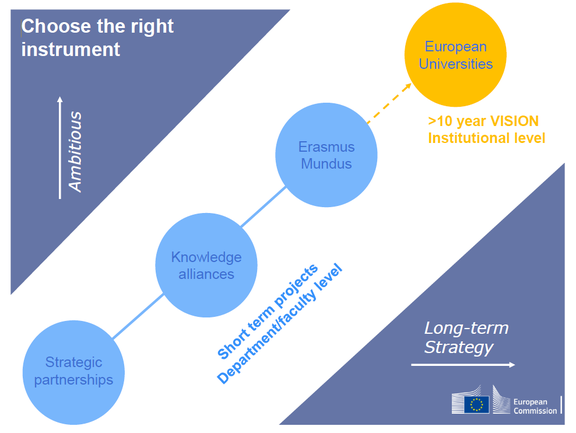Organisation
Background
In autumn 2018, the European Commission presented the European Universities Initiative, an ambitious funding stream under the umbrella of the Erasmus+ programme for stronger and more integrated cooperation between European universities. According to the European Commission's description, European Universities are "[...] are transnational alliances that will become the universities of the future, promoting European values and identity, and revolutionising the quality and competitiveness of European higher education."1 The programme supports university alliances that are based on a jointly developed long-term strategy and test new forms of university cooperation. A particular focus is on teaching and joint teaching activities to achieve mobility at all levels of study. In principle, however, the European Universities Initiative is designed to cover all areas of university activity - teaching, research, innovation and third mission.
As part of two calls in 2019 and 2020, the European Commission selected 41 alliances through a competitive process. With initial funding of €5 million over three years, these alliances will now implement the idea of European Universities.
1 See European Commission: "European Universities" initiative.
Alliance organisation
The Aurora Alliance can build on existing structures of the Aurora university network. Already in 2016, with the foundation of the network, an Aurora Office was established at the Free University of Amsterdam, which is headed by Secretary General Kees Kouwenaar and includes various committees and actors (see also the organization of the Aurora Network.
The Aurora office in Amsterdam has been in charge of the application for the Aurora European Universities Alliance and has been increased in staff after the successful approval by the European Commission. In the coming months, the alliance-wide structures will be successively developed and refined under the auspices of the Aurora Office, whereby established bodies of the Aurora Network - such as the regular meetings of the Presidents / Rectors, Vice Rectors Research, Vice Rectors Education or the Aurora Alliance Student Board - will be used coherently.

Internal organisation
Within Universität Innsbruck all groups of university members are involved in the Aurora Alliance: Scientific staff, administrative staff as well as students. The Aurora Alliance is under the lead of the Rectorate and is supported by the Aurora European University Office. In the coming months, the following groups will be successively established to better structure the internal organisation:
- Core team: Small working group headed by the Aurora European University Office, which continuously coordinates the content and organization of overarching topics (Meetings: once a week)
- Project team: All members of the administrative staff directly involved in the alliance activities (Meetings: approx. once per quarter year)
- Pilot Domain Group: Scientists from various disciplines, who are involved as content experts in alliance-wide discussion as well as in the internal implementation (Meetings: when needed)
- Steering Group: Overarching group for discussing strategic issues with members from various committees and groups of university members (Meetings: 1-2 times per academic year)
In addition, various ad hoc groups will be necessary, which will only emerge in the course of further implementation. By doing so, we will ensure the broadest possible involvement in and comprehensive information about the Aurora European Universities Alliance.
If you have any questions regarding your potential involvement, please contact the Aurora European University Office.


